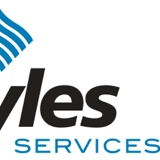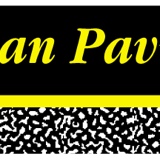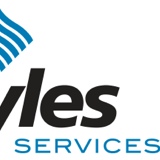Information
-
Document No.
-
Operating Company
-
Project Name / Job Number
-
Conducted on
-
Prepared by
-
Location
Safety Program Administration
-
Appropriate Signage in Place
-
Safety Policy & Standard Operating Procedure Manual Onsite & Updated
-
Site Specific MSDS Binder Onsite
-
Federal, State, OSHA, Company,Required Postings Posted
-
Toolbox Safety Training Performed Weekly
-
Foreman Daily Safety Huddles Completed
-
JSA Completed Prior to Hazardous Tasks
-
Mentor Program is in Effect (Yellow Hard Hat)
-
Site Specific Emergency Action Plan
-
Applicable Permits Onsite (Trench/Excavation, Scaffold/Falsework, etc.,)
-
Weekly Safety Inspections Performed
-
Other;
First Aid
-
Trained Person(s) Onsite
-
First Aid Kit and Supplies Adequate in Size and Maintained
-
Eye Wash Station(s) in Place
-
Other;
Portable Generators
-
Guards in Place
-
Grounded System
-
GFCI Protection (Test Operation)
-
Damaged Outlets
-
Other;
Air Compressors
-
Belts and Pulleys Guarded
-
Pressure Gauge Working
-
Pressure Relief Valve Operational
-
Hose Connections Secured
-
Pressure Reduced at Operation
-
Hoses in Good Condition
-
Other;
Fire Extinguishers
-
Readily Accessible/Mounted
-
Proper Type and Size Available
-
Proper Maintenance/Tagged
-
Inspected Monthly/Annually
-
Employees Trained Annually on Usage
-
Other;
Flammable Liquids (Gasoline) / Chemical Handling
-
Stored in Approved Containers/Cabinets
-
Containers Properly Labeled (Identity, Hazard Warnings)
-
Spill Containment and Cleanup Supplies
-
Oxygen Cylinders Separated from Fuel Gas Cylinders or Combustible Materials (Min. 20' or 5' 1/2 Hr. Rated Fire Wall)
-
Fire Extinguisher Available Near Storage Areas w/in 25'
-
Hydrants are Clear and Access to Public Thoroughfare is Unobstructed
-
Signs Posted NO SMOKING "Flammable Materials"
-
Hazardous Chemicals in Secondary Containment, Proper Disposal
-
Storage Area Bermed for Spill (2 -1/2 Times Larger Than Tank)
-
Other;
Power Cords / Extension Cords / Electrical Hazards
-
Grounding Pin Present
-
Damaged Insulation Exposed Wiring
-
Plug Ends & Insulation Connected
-
Proper Gage (12/3 or Better)
-
All Circuits are GFCI Protected
-
Breaker Boxes and Switches Labled
-
Electrical Dangers Identified & Labeled
-
Cords Protected From Damage
-
Lock Out / Tag Out Procedures In Place
-
Other;
Powder Actuated Tools
-
Tool and Loads Properly Stored and Maintained
-
Certified/Trained Operator
-
Appropriate Signage Posted w/in 50'
-
Load Strips Properly Disposed of
-
Other;
Hand and Power Tools
-
All Mechanical Safeguards In Place as per Manufacturer & Cal OSHA Regulations (Zero Tolerance Item)
-
User Properly Trained
-
Tools Are in Good Condition
-
Correct Tool Being Used For The Job
-
Tools are Stored Neatly When Not In Use
-
Materials Properly Supported
-
Other;
Ladders and Stairways
-
Ladders Inspected and Maintained
-
Ladders Proper Length & Secured to Prevent Slipping, Sliding or Falling - Tied Off
-
Extension Ladders Extend 36" Above Landing
-
Extension Ladder Base Positioned 1/4 of the Vertical Distance
-
Area Around Base and Top of Ladder Clear and Unobstructed
-
Proper Maintenance and Storage
-
Stepladders Fully Opened
-
Job Made Ladders Constructed as Per Cal OSHA Regulations
-
Metal Ladders Not Being Used Around Electrical Hazards
-
Evidence of Unsafe Use of Ladders (Zero Tolerance Item)
-
Other;
Material Handling & Storage
-
Proper Lifting Techniques Being Used
-
Stacks on Firm Footing & Not Too High
-
Lay Down Areas Neat & Organized
-
Passage Ways are Clear
-
Other;
Personal Protective Equipment
-
Head Protection Hard Hat
-
Safety Glasses
-
Full Face Shield
-
Hearing Protection
-
Appropriate Hand Protection (Abrasion, Cut, Puncture, Chemical)
-
Foot Protection
-
Respiratory Protection
-
ANSI Class II or III High Visibility Garment (Vest, Shirt, or Jacket)
-
Other;
Fall Protection
-
Full Body Harness
-
Appropriate Connecting Device (Lanyard above 18', SRL below 18')
-
Appropriate Anchorage (5000 lb. Capacity)
-
Engineered Vertical or Horizontal Life Line
-
Guard Rails in Place and Secure, Top Rail 42"-45" Mid Rail at 1/2 the Distance
-
Controlled Access Zone Established
-
Warning Line Established
-
Competent Trained Person(s) Onsite
-
Employees Properly Trained
-
Equipment in Good Condition and Inspected Semi Annually
-
Rescue Plan In Place
-
All Personnel Protected Against Fall Height Greater Than 6' (Zero Tolerance Item)
-
Other;
Aerial Lifts
-
Equipped with Outriggers
-
Guard Rails in Good Condition
-
Full Body Harness and Fall Restraint in Use
-
Safety Chain Present and Connected
-
Employees Properly Trained
-
Employees Standing on Floor of Lift
-
Documented Daily Inspection Completed
-
Other;
Industrial Trucks (Tele-handler/Rough Terrain)
-
Roll Over Protective System (ROPS)
-
Documented Daily Inspection Performed
-
Back-up Alarm and Horn Operational
-
Fire Extinguisher
-
Operator Trained and Authorized to Use
-
Seatbelt Being Worn
-
Load Chart and Applicable Manuals on Lift
-
Lift being Operated in a Safe Manner
-
Other;
Cranes / Boom Trucks
-
Annual and Daily Inspections Complete
-
Fire Extinguisher in Cab & Inspected
-
Boom Angle Indicator and Load Charts Visible
-
Proper Hand Signals in Use & Posted
-
Swing Radius Barricaded
-
Rigging Inspected Prior to Use & in Good Condition, All Tags Legible & Attached
-
Rigging Properly Stored When Not In Use
-
Seat Belt Being Used
-
Qualified Rigger in Use
-
Qualified Signal Person in Use
-
Power Lines Deactivated, Removed or at a Minimum Safe Distance, Spotter in Use w/in 20'
-
Tag Line(s) in Use For Load Control
-
Equipment is Firmly Supported
-
OutRiggers In Use
-
Pre-Lift Meeting Conducted
-
Critical Lift Plan Reviewed
-
Operator Certified and Medical Card Current
-
Other;
General House Keeping
-
Orderly Storage of Material
-
Orderly Storage of Equipmen
-
Trash and Debris Picked Up
-
Adequate Supply of Trash Receptacles
-
Banding Material and Wire
-
Protruding nails Removed or Bent Over
-
Restrooms Clean and Supplies Adequate
-
Hand Wash Stations Supplied & Stocked
-
Dust Protection Observed
-
Lighting is Adequate
-
Other;
Heat Illness Prevention
-
Cool Drinking Water Supplied & Nearby
-
Disposable Cups & Trash Receptacles Provided
-
Adequate Shade Provided & Comfortable Seating
-
Employees Properly Trained
-
High Heat Requirements In Effect (95 degrees +)
-
Un-acclimatized Employees Monitored
-
Other;
Concrete Construction
-
Forms Properly Installed and Braced
-
Post "Laser In Use" Signage When in Use
-
Employees Using Lasers Properly Trained & Carrying Card
-
All Rebar, Round Form Stakes and Similar Protrusions Protected
-
Concrete Clean Out Area Designated and Set Up Properly
-
Mixing Transport has Adequate Runways and Traffic Controlled
-
Long Sleeved Shirts or Barrier Cream Used
-
Eye Protection, Hand Protection, Rubber Boots in Use
-
Communication Between Pump Hopper and Operator Maintained
-
Other;
Confined Space
-
Permit Completed
-
Verify Atmospheric Monitor Onsite & Calibrated w/in Last 30 Days
-
Bump Test Performed Prior to Entry
-
Continuos Monitoring Required and Documented every 30 Minutes
-
Ventilation of Space Adequate
-
Retrieval System in Place (Required for Entries over 5')
-
Pre-Task JSA Completed and Reviewed Prior to Entry
-
Rescue Procedures in Place & Reviewed Prior to Entry
-
Evidence of Work in a Non-Compliant Confined Space (Zero Tolerance Item)
-
Employees Involved Trained on Responsibilities (Supervisor, Attendant, Entrant)
-
Other;
Trenching and Excavation
-
Designated Competent Person Onsite
-
Documented Daily Inspection Performed
-
Proper Protective System for Soil Conditions in Place over 5'
-
Manufacturers Tabulated Data Available
-
Adjacent Structures Properly Supported
-
Adjacent Roads and Sidewalks Supported and Protected
-
Spoils Pile at Least 24" From Edge of Excavation
-
Excavation Adequately Barricaded
-
Equipment is Safe Distance from the Edge of Excavation
-
Extension Ladders Provided Where Needed - Within 25' of Workers
-
Equipment Ramps are Adequate
-
Evidence of Work In a Non-Compliant Excavation (Zero Tolerance Item)
-
Other;
Heavy Equipment and Vehicles
-
Operator Trained on Equipment Being Used
-
Seatbelt Worn at All Times
-
Inspection and Maintenance Logs Completed
-
Safety Devices Functioning Properly (Brakes, Lights, Mirrors, Horn, Etc.,)
-
Back-up Alarm Installed and Audible
-
Wheels Chocked on All Mobile Equipment When Standing Alone
-
Fire Extinguisher Present and Inspection Tag Current
-
Other;
Masonry (If Subcontractor Onsite)
-
Limited Access Zone Created Around Work Area, Signs Posted
-
Masonry Saws are Properly Equipped and Dust Containment Provided
-
Safe Hoisting Equipment In Use
-
Proper Scaffolding In Use (See Scaffolding)
-
Loads Properly Placed on Scaffolding
-
Walls over 8' Properly Braced Until Permanent Supports Are in Place
-
Other;
Scaffolding
-
Erection and Dismantling Must Be Supervised By a Qualified Person
-
Employees Trained on the Safe Use Of Scaffolding
-
Scaffold Components are in Good Condition
-
Scaffold Inspected Daily by Competent Person
-
Safe and Unobstructed Means of Access and Egress to All Scaffold Platforms
-
Work Area Must be Fully Planked & Planks Secured When Required
-
Workers Below Below Are Protected From Falling Objects - Toe Boards
-
Scaffold is Plumb and Square, Adequate Bracing in Place
-
Guard Railing and End Rails in Place (Top Rail 42" - 45" Mid Rail 1/2 the Distance Between
-
Scaffold Legs Nailed to Base Plate To Prevent Horizontal Movement
-
Scaffold Secured to Structure When Required
-
Scaffold Deck Free of Debris and Materials Are Secured
-
Stored and Work In Progress Materials Are Organized
-
Evidence Of Work Being Performed On Unsafe Scaffold System (Zero Tolerance Item)
-
Other;
Steel Erection (If Subcontractor Onsite)
-
Fall Protection Measures In Place
-
Temporary Periphery Cables at Each Floor Level
-
Tag Lines In Use To Control Load
-
Ladders, Stairs or Other Access Provided
-
Personal Fall Protection In Place as Per Cal OSHA Title 8 CCR 1710 (m)
-
Other;
Traffic Control
-
Cones / Delineators Used Around Work Site
-
Cones / Delineators Create Adequate Taper To Actual Work
-
Flaggers Are Trained & Wearing ANSI Class II or III High Visibility Garment
-
Workers Exposed To Vehicular Traffic Wearing ANSI Class II or III High Visibility Garment
-
Pre-Warning Signs In Place (Road Work Ahead, Flagger Ahead, Etc,.)
-
Sign Board(s) In Place To Warn of Lane Closure
-
Approved Traffic Plan In Place and Followed
-
Public Protected from Work
-
Spotter Used For Moving Of Equipment Near Or Through Traffic
-
Other;
Welding and Cutting
-
Equipment Is In Good Condition
-
Welders and Helpers Are Wearing Proper PPE
-
Adjacent Workers Protected By Screens or Shields
-
Electrical Equipment Is Grounded
-
All Cables Are Protected And In Good Condition
-
Fire Extinguisher Of Proper Type And Size In The Work Area
-
Flammable Materials Removed From Work Area Or Protected
-
Compressed Gas Cylinders Secured In Upright Position And Protective Caps In Place
-
Backflow Preventer On Leads From Oxygen and Acetylene Cylinders
-
Gas Lines Are Protected And In Good Condition
-
Hot Work Permit Completed When Required
-
Trained Fire Watch In Place (Min. Of 30 Minutes After Welding Task Completed)
-
Corrective Actions Taken / Summary
-
Project Supervision:
-
Safety Specialist:









